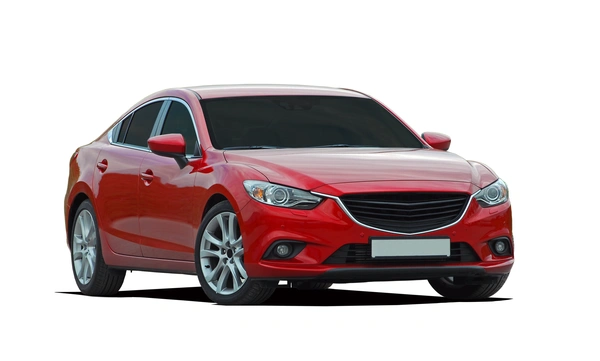Car Tax Check
Get a free car tax check instantly

Get a free car history check instantly
Current vehicle tax and expiry date status
Find out whether your vehicle has been taxed or not, as well as when your road tax is due to expire.
Has your vehicle got a valid MOT?
You can also check if your vehicle has a valid MOT certificate and when your next MOT is due.
Vehicle information
The date your vehicle was registered, fuel type, mileage records and much more!
Looking for car insurance?
Compare your options with Howden.
How can I check if a vehicle is taxed?
You can check if your vehicle's is taxed and when your tax expires online by using our free Car Tax checker tool.
Once you've added your vehicle's registration number into our Car Tax checker tool it crawls a vehicle database and tracks down your vehicle. Once your vehicle is identified, the tool will not only determine when the vehicle last was last taxed, but it will also let your vehicle's car tax is due. Checking your road tax online is that easy.*
*Your results should be available as soon as the MOT centre has recorded the test. Results are only available for tests done in England, Scotland or Wales since 2005.
What does the free car tax check include?
Our free Car Tax Checker check tool provides a comprehensive overview of a car's road tax status.
Once you've entered your reg into the tool it'll tell you if your vehicle's tax is currently valid and when it's next due. It also confirms whether the vehicle has a valid MOT certificate, as well as some brief details about the vehicle itself.
Do you think your tax expiry date or vehicle details or wrong? Contact DVSA.
Read more about car tax
Why should I check if my vehicle is taxed?
It is important to check if your car is taxed for the following reasons:
Legal Requirement
In the UK, it is a legal requirement to have valid road tax or Vehicle Excise Duty (VED) for most vehicles driven on public roads.
Avoid penalties
Driving without valid road tax can lead to fines of up to £1,000, clamping of your vehicle, and even prosecution.
Peace of mind
Checking your car tax status gives you peace of mind knowing that you are complying with the law and avoiding potential penalties.
Accuracy
Sometimes there might be errors in the system, and checking your car tax status ensures that the information held by the DVLA (Driving Vehicle Licensing Agency) is accurate.
Buying a Used Car
When buying a used car, it is crucial to check the car's road tax status as the tax is not transferred to the new owner. You are responsible for taxing the vehicle immediately after purchase.
Remind yourself
Even if you have set up a Direct Debit for automatic renewal, it is still a good idea to periodically check your car tax status to ensure everything is in order.
Don't get caught out. Find out your MOT due date now. Check MOT
How to tax a car
To tax your car, just follow these steps:
- Check your current tax expiry date: enter your vehicle reg into our Car Tax checker and find out when your car tax is due.
- Prepare your documents: having the following documents to hand will help you through the process of taxing your car:
- Vehicle tax reminder (V11)
- Vehicle logbook in your name (V5C)
- 'New keeper' slip from the logbook if you've just bought the vehicle
- Choose which method you'll use: there's a few ways you can tax your car:
- Online: visit the and use the reference number from one of the documents mentioned above. You can pay by debit or credit card, or set up a Direct Debit.
- By Phone: call the DVLA vehicle tax service at 0300 123 4321. Note that you cannot pay by Direct Debit over the phone.
- At a Post Office: go to a Post Office that deals with vehicle tax. Bring your payment details and one of the required documents. You might also need to show evidence of a valid MOT
- Payment: you can pay for your vehicle tax using a debit or credit card, or set up a Direct Debit for continuous payments.
- Confirmation: the DVLA will then confirm that the vehicle's registered for road tax and legal to be driven on UK roads.
Some vehicles though are tax exempt, which does mean you won't need to pay to tax it. However, despite this, you must remember that you still need to tax your vehicle even if you do not need to pay anything.
What if my vehicle is off the road?
If your vehicle is off the road, you can register it with a Statutory Off Road Notification (SORN). This will make the DVLA aware that the vehicle does not need to be taxed.
You can learn more about declaring a vehicle as SORN by reading our guide: SORN my car: How to declare your vehicle as off road.
Why choose Howden?

Rated 'Excellent' on Trustpilot

500,000+ Protected Clients

Insuring for 30+ years

Insurance Broker of the decade
Frequently asked questions about car tax
Can I drive without road tax?
No, you cannot drive in the UK without having road tax (Vehicle Excise Duty or VED). Driving a vehicle without valid road tax on UK roads is illegal.
However, there are exemptions, such as driving tax-exempt vehicles or driving to a pre-booked MOT without road tax. You also do not need to tax a vehicle that you have declared as SORN.
You can learn more about how to tax your car in our handy guide: How to tax a car: Your complete guide.
What happens if you drive without road tax?
If you were to drive your vehicle without valid road tax, that would be illegal. Therefore, doing so can result in any of the following punishments:
- Fixed Penalty Notice (FPN): this could be worth up to £1,000 if you are stopped by the police.
- Clamping: the DVLA could choose to clamp your vehicle until you pay the tax fee they believe you owe.
- Out of court settlement: If you are caught using an untaxed vehicle on a public road without a SORN then an out of court settlement letter will be issued. The fine is £30 plus one and a half times the outstanding vehicle tax.
- Invalidate insurance: an insurer might pull out of an insurance contract they have with you if they find out you’ve driven the insured vehicle without road tax.
How much is car tax?
In the UK, car tax (Vehicle Excise Duty or VED) rates for 2025 vary based on factors like your car's registration date, fuel type, and CO2 emissions. Here’s how rates differ for each car:
- Standard rate: The flat rate for most cars is £190 per year.
- Hybrid cars: These get a small discount, paying £180 annually.
- Premium cars: If your car had a list price over £40,000 when new, an additional £410 is added to the annual VED.
- Electric vehicles: Starting April 2025, electric cars will also be subject to VED.
- First-year rates: These vary significantly based on CO2 emissions. For example, cars emitting 1-50 g/km of CO2 will pay £110 in the first year.
You can how much your own car tax is by using the Car Tax Checker above.
Does car tax automatically renew?
Your car tax will automatically renew if you have a Direct Debit set up with the DVLA. When your vehicle tax is due to run out, the DVLA will renew it automatically via the Direct Debit that’s been set up.
If you do not have a Direct Debit set up with the DVLA, you’ll need to renew your car tax each year.
Do you HAVE to renew your car tax every year?
In the UK, unless your vehicle is tax exempt, you must renew its road tax annually before it expires. Once the road tax expires, you are not legally allowed to drive the vehicle until its renewed.
Who is responsible for paying vehicle tax?
The registered keeper of the vehicle is responsible for paying vehicle tax. Essentially, whoever’s name is on the vehicle registration document (V5C) for the vehicle is the person who is legally obligated to make sure they pay road tax.
What must you have when renewing vehicle tax?
If you don’t have direct debit set up, when renewing your vehicle tax, there are four things you’ll typically need:
- Vehicle logbook (V5C): This document contains important information about your vehicle, including its registration number, make, model, and engine size. You can also use the number on your V11 reminder as an alternative if you do not have your V5C.
- MOT certificate: Your vehicle must have a valid MOT certificate. You can check the expiry date of your MOT online with our MOT Checker.
- Insurance certificate: You must have valid insurance for your vehicle. You can get a car insurance policy by speaking to a member of the Howden Insurance
- Payment information: You'll need a debit or credit card to pay car tax. You can also pay by Direct Debit, cheque, or postal order.
How can I tax a car without a V5C?
You don’t necessarily need a V5C document in order to tax a car. You can use the following alternatives to tax your car:
- V11 Reminder: there’s a 16-digit reference number on these letters which you can use to tax your car. You can found in more about this document in our guide: What is a V11 reminder?
- ‘New Keeper’ green slip or V5C/2: this method of taxing is for new keepers of the vehicle only. You should have received this when you acquired the vehicle, and you can use the 12-digit reference number to tax the vehicle.
If you’re the current keeper of the vehicle, and have lost the V5C logbook, you can also apply for replacement. You can do this via the DVLA, and you can also learn more about V5C logbooks in our guide: All the Info You Need on Your V5C Log Book.
Can I tax a car without a 'New Keeper' slip?
Yes, you can tax a car without a ‘New Keeper’ slip. You can use the reference numbers found on a V11 reminder or a V5C logbook. Your vehicle must also be insured and have a valid MOT certificate.
Can I tax my car without a V11?
Yes, you can tax a car without a V11 reminder. Alternatively, you can use the reference numbers on ta V5C logbook or a ‘New Keeper’ slip to tax your vehicle. Your vehicle must also be insured and have a valid MOT certificate.
Can you tax a car without insurance?
No, in the UK, you cannot tax a car without valid insurance. The DVLA would be able to identify if you vehicle hasn’t been insured.
If you don’t have insurance in place, you can speak to an insurance broker like Howden who can help you get your hands on a policy that comprehensively protects you and your vehicle.
Can I renew my car tax at the Post Office?
Yes! You can renew your car tax at the Post Office. Just make sure you visit a branch which can offer vehicle tax services. You can track these down using the Post Office Branch Finder tool.
Before you visit the Post Office branch, remember to bring either your V5C logbook or V11 reminder, a valid MOT certificate for the vehicle, and a method of payment.
How can I SORN a car that is taxed?
Anyone can SORN a car which has been taxed either online, by post, or over the phone. All you need to do is:
- Gather the necessary information: You’ll need the 11-digit number from your vehicle logbook (V5C) or the 16-digit reference number from your vehicle tax reminder (V11).
- Start the SORN application process: The quickest way to do this is via the DVLA website. However, you can also call the DVLA on 0300 123 4321, or send the V890 SORN form to the DVLA – their address is DVLA, Swansea, SA99 1AR.
- Choose when you want the SORN to start: If your vehicle tax has expired or you are not applying in the month your vehicle tax is due to expire, your SORN will start immediately. If you are applying in the month your vehicle tax is due to expire, your SORN will start on the first day of the next month.
- Receive confirmation: Once you have applied, you will receive confirmation from the DVLA that your car has been SORNed.
How do I tax a SORN vehicle?
Taxing a vehicle that has been declared SORN (Statutory Off Road Notification) is simple. Just follow the below steps:
- Ensure your vehicle is roadworthy: Your vehicle needs a valid MOT certificate and valid insurance for the vehicle. Otherwise you won’t be able tot tax the vehicle.
- Gather the necessary information: You'll need the 11-digit number from your vehicle log book (V5C), or you can use the 16-digit reference number from your vehicle tax reminder (V11).
- Choose how to tax your vehicle: There’s three ways you can tax a vehicle. You can apply:
- Online: The quickest and easiest way is to tax your vehicle online through the DVLA website: https://www.gov.uk/vehicle-tax
- By phone: You can also tax your vehicle by calling the DVLA's 24-hour vehicle tax service.
- By post: Some Post Office branches allow you to tax your vehicle in person.
- Tax your vehicle: Follow the instructions provided on the DVLA website or by the DVLA representative if you call them.
- Confirmation: Once you've taxed your vehicle, you'll receive confirmation, and the SORN status will be automatically removed.
You can find out more about this process in our guide: SORN my car: How to declare your vehicle as off road.
Can you drive a SORN car to an MOT without tax?
Yes, you are able to drive a SORN vehicle to an MOT without tax. However, you must have confirmation that you have pre-booked the MOT appointment and have a valid insurance policy for the vehicle.
Can you test drive a car without tax?
No, you cannot test drive a car without tax in the UK. This is because it is against the law to drive a vehicle on a public road without having valid road tax in place.
However, the seller of the car that you’re test driving is responsible for making sure the car is taxed.
Can I drive a new car home without tax?
No, you cannot drive an untaxed car home, regardless of whether it’s new or old. If you’re taking a car from a dealership, or from someone else’s property, the car must be taxed before you drive it away.
Depending on the arrangement you have with the dealer or the seller, you may have to tax the car in advance before you drive it back home. Some dealerships may offer to tax your car for a day or two, so that you can drive your new car home and tax it then.
Do electric cars pay road tax?
Yes, from April 2025, owners of electric vehicles will be required to pay road tax. Prior to then, electric car owners were not required to pay road tax.
How much is road tax on electric cars?
EVs will incur a £10 charge in the first year, but then from the second year onwards, cars registered after April 2017 will have a road tax annual flat rate of £195. Owners of electric cars registered before April 2017 will only need to pay £20 annually.
For electric vehicles which are worth more than £40,000 will now also be subject to a “showroom tax” which will be charged annually between the 2nd and 6th years of ownership.
When does a car become tax exempt?
Cars made before the 1st January 1984 or registered before the 8th January 1984 are exempt from road tax from the 1st April 2024. From the 1st April 2025, cars made before 1st January 1985 and registered before the 8th January 1984 are exempt from road tax.
You can read more about when cars become classic in our guide: When Does a Car Become a Classic?
Which cars are exempt from road tax?
According to the guidelines set out by GOV.UK website, the following types of car are exempt from vehicle tax in the UK:
- Disabled passenger cars
- Used by companies which provide transport for disabled people (excluding ambulances).
- Cars used by a disabled person
- Disabled drivers are able to claim for disability exemption when applying for vehicle tax.
- Electric cars
- EV vehicles are exempt from road tax until April 2025.
- Historic cars
- All cars made before or first registered more than 40 years ago, you do not need to pay road tax when driving it.
There are other vehicles, such as those used for agriculture and mowing, mobility vehicles, steam vehicles, and SORN vehicles which are also exempt from road tax. Visit the GOV.UK website to find out more.
More car and MOT resources
Guides about car tax
Still got some questions around car tax? Take a look at the guides below and get all the answers you need!
- UK car tax changes 2025: what you need to know
- How to Cancel Car Tax: A Step-by-Step Guide
- Electric Car Tax: Your Complete Guide
- How to tax a car: Your complete guide
- Can You Tax a Car Without an MOT?
- How much will electric car tax be?
- All the Info You Need on Your V5C Log Book
- V5C New Keeper Slip: How to Change a Car’s Registered Keeper
- What is a V11 reminder?
Other car guides
Learn more about the ins-and-outs of cars through our car guides:
- New registration plates for 2025: UK number plates explained
- How to change a car battery
- What does a car service include?
- How much oil does my car need? A handy guide
- Car warranty cover: What to know
- What is ESP on a car?
- How long do car tyres last?
- How long does a car battery last?
- Wrong fuel in your car? Here’s what to do
- SORN my car: How to declare your vehicle as off road
- When Does a Car Become a Classic?
Latest car insurance guides
Everything you need to know about cars and the insurance policies which cover them. Explore more topics in our Car Insurance Guides.
- Car Insurance Groups [A Complete Guide]
- Car Insurance Group Checker
- Your guide to Cat S car insurance
- If my car is written off what happens to my insurance-policy?
- When does my car insurance run out?
- Can you use a no claims bonus on two cars?
- Car insurance for non UK residents
- How much voluntary excess should I pay on car insurance?
- Can you drive a SORN car to an mot without insurance?
- What are car insurance occupation categories?
- Car insurance change of address: what to know
- Car insurance without a black box: what to know
- Car insurance cancellation laws in the UK
- Your guide to car insurance for 17 year olds
- Car insurance for women
- Car insurance for test drives
MOT guides
Need more information about MOTs? You’ve come to the right place. Learn more about how MOTs work in the guides below:
- Free MOT checker - Check a vehicle's MOT history
- MOT FAQs - Everything you need to know about MOTs
- What Does MOT Stand For? MOT Terms Explained
- Your complete MOT checklist
- When do I need an MOT?
- Motorcycle MOTs: All you need to know
- Can You Insure a Car Without an MOT?
- Can You Tax a Car Without an MOT?
- What MOT Class is My Vehicle?
- How long does a MOT take?
- Drive without an MOT - what you need to know
- Class 7 MOTs: Your Complete Guide
More car and MOT resources
Overview of the key changes which took place from 1 April 2025:
- There will be VED hikes for petrol, diesel and hybrid cars: Any car with CO2 emissions between 1-50g/km (essentially most plug-in hybrids) will jump from £10 in the first year to £110. Similarly, cars in the 51-75g/km band jump from £30 to £130. And anything that emits 75g/km or more will see the first-year rate double.
- CO2-based tax means it’s still much cheaper to run an EV
- Electric cars are no longer tax exempt: zero-emissions cars registered from 1 April 2025 will pay £10 in first year VED (“road tax”), then £195 for every year after that
- Electric cars now have to pay the ‘showroom tax’ too: cars with an RRP above £40,000 have to pay an additional £410 per year on top of VED payments for the first five years after it’s registered, known as Expensive Cars Supplement tax (ECS). EVs were previously exempt, but this will change in April 2025
- Benefit-in-kind rate (Company car tax) will increase for all vehicle types:
- For EVs, it will increase by 1% each year from 2025 to 2028 (currently at 2%)
- Vehicles producing 75g/km of CO2 or more will see a 1% BIK rate increase in April 2025, remaining constant until at least 2028.
- The percentage scale based on CO2 emissions will still apply, with a maximum BIK rate of 37% for high-emission vehicles (over 170g/km).
You can read more about these changes in our guide on UK car tax changes in 2025.
Related Products
Car Insurance
Save money on your Car Insurance
Helping to save you money, without compromising on cover. As a car insurance broker, we listen to your needs and help you find a policy that’s right for you — at our best possible price.
Temporary Cover
Pay by the day: temporary protection that makes sense
Let us help you find our best value temporary cover, ideal if you’re lending or borrowing a vehicle for a short period of time.
Van Insurance
Van insurance tailored to you.
We strive to help you save time and money when searching for van insurance.
Breakdown Cover
Roadside assistance 24/7, 365 days a year
Don’t be left stranded. Get your hands on breakdown cover that responds when you need it most.
Related Articles
How to cancel car tax: a step-by-step guide
7 Car insurance renewal tips
If my car is written off, what happens to my insurance policy?
How to reduce car insurance: 12 tips
